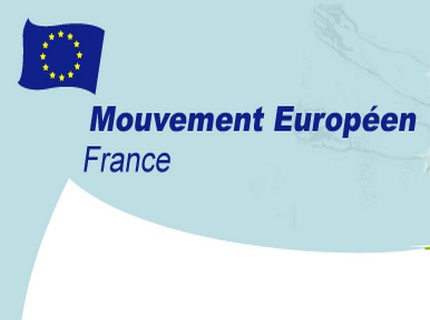Following a collective effort by its members, the ME-F has approved a guidance document that updates its message. For 60 years, the European Movement France has been advocating a federal approach to European integration. This has ensured peace and prosperity in Europe. But times are changing.
The challenges facing Europe are multiplying: globalization, the climate challenge, risks to social cohesion, the financial crisis, and the rise of populism and nationalism. At a time when a European surge is more necessary than ever, citizens are losing interest in Europe, and states are tempted by national rather than common solutions.
Europe is at a crossroads. The Union must take the initiative: become strong and powerful to defend the values and interests of Europeans globally, and become closer to citizens by developing a political Europe that can democratically develop a project for Europeans.
The immediate priority is to curb the risks of disunity stemming from the financial crisis. The endangerment of the Euro would risk losing the European project itself. In recent months, the weaknesses of the Eurozone’s governance have been revealed. The urgent need for the Union is to strengthen solidarity within the eurozone. The ME-F calls for this solidarity to be reinforced with new economic, budgetary, and fiscal competencies.
This is necessary for the monetary union and to prepare new policies essential for ensuring sustainable economic and social prosperity.
Europe must acknowledge its diversity and accept progressing at different speeds across various areas: the eurozone, structured defense cooperation, reinforced cooperation on specific issues, and the broader Union. The strengthened eurozone, open to all member states wishing to join, must become the economic and political heart of the Union. The deepening of policies and solidarities within the eurozone will allow progress toward a federal Europe.
To regain citizen support, Europe must offer united crisis exit solutions. It must give meaning to its action: economic, energy, industrial, environmental, and knowledge policies that allow it to regain competitiveness and meet the demands of sustainable development, an economy that balances market roles with social policies, convergence of tax policies and social protection standards, and intelligible policies for citizens.
Greater democratic legitimacy of the Union is necessary. Political Europe will progress thanks to the European Parliament. Elected based on programs presented by European political parties, on European lists, and during a wide democratic debate, it will exercise all the competencies acquired by the Lisbon Treaty and designate the Commission, which will be accountable to it. Through its initiatives, it will restore the balance between the two legitimacies – of the citizens and the states – that underpin the Union.
Europe is weakened by the tendency of states to prioritize national solutions, even if coordinated within the European Council. We must rediscover the spirit of Europe’s founding fathers by using the co-decision of Parliament and the Council for new policies, with implementation by the Commission, which must resume its driving role in European integration. Nothing is possible without resources.
Europe cannot remain a financial dwarf. Europe needs a substantially increased budget to face its new competencies and to correspond to a community of 500 million inhabitants. This budget must be based on resources collected directly by the Union to no longer depend on yearly inter-state negotiations and for each project.
Facing global challenges, the European Union will develop a common diplomacy, defense, and foreign policy in all its areas of competence. Its positions in international institutions will become shared. The European Union must establish itself as a peace actor in an increasingly conflictual world, which operates under power dynamics. It will work for global governance.
Thanks to the creation of a political Europe and the presence of a group of countries more advanced in integration, the continued enlargement of the Union will be possible, without fear of abandoning our federal European project. Enlargement to new countries must be based on new entrants’ acceptance of the political project, on the Union’s integration capability, and confined, according to the treaties, to European countries.
The European identity of citizens and their sense of belonging to Europe are essential for our shared future. They will be reinforced by the progressive creation of a European civil society, the multiplication of exchanges between citizens, the development of mobility and multilingualism, the teaching of a common cultural foundation, and the convergence of social protection systems.
The ME-F calls on French society and its political leaders to consider that in the face of the emergence of other continents, the European Union is the indispensable political project for a European revival. Everything must be done to stem the trend of individual and nationalistic withdrawal in Europe and promote a powerful, federal, united Europe close to its citizens.
To revive the debate and initiate a new phase of European integration, the European Movement France calls for the convening of a new Congress of The Hague, widely open to citizen participation, dedicated to the European project.
### What objectives for the Union? What new policies? What means? With which countries if not all are ready to move forward?


